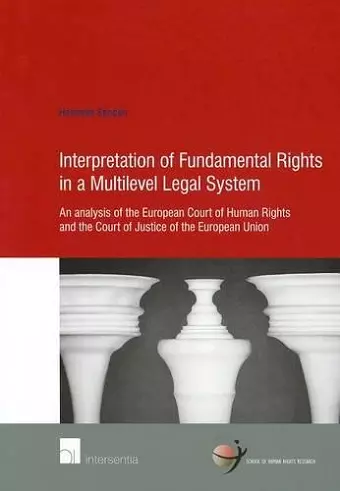Interpretation of Fundamental Rights in a Multilevel Legal System
An Analysis of the European Court of Human Rights and the Court of Justice of the European Union
Format:Paperback
Publisher:Intersentia Ltd
Published:7th Oct '11
Currently unavailable, and unfortunately no date known when it will be back

This non-fiction paperback, "Interpretation of Fundamental Rights in a Multilevel Legal System" from Hanneke Senden, was published 7th October 2011 by Intersentia Ltd.
ISBN: 9781780680279
Dimensions: unknown
Weight: unknown
466 pages